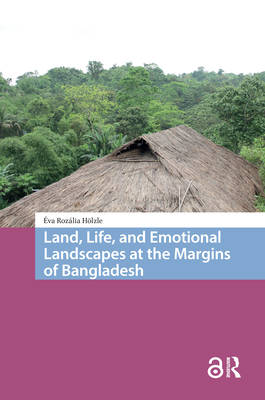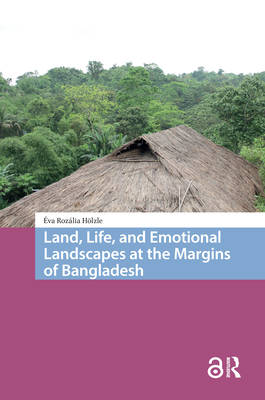
- Afhalen na 1 uur in een winkel met voorraad
- Gratis thuislevering in België vanaf € 30
- Ruim aanbod met 7 miljoen producten
- Afhalen na 1 uur in een winkel met voorraad
- Gratis thuislevering in België vanaf € 30
- Ruim aanbod met 7 miljoen producten
Zoeken
Land, Life, and Emotional Landscapes at the Margins of Bangladesh
Éva Rozália Hölzle
€ 155,45
+ 310 punten
Omschrijving
Drawing on two years of ethnographic research in the north-eastern borderlands of Bangladesh, this book focuses on the everyday struggles of indigenous farmers threatened with losing their land due to such state programmes as the realignment of the national border, ecotourism, social forestry and the establishment of a military cantonment. In implementing these programmes, state actors challenge farmers' right to land, instituting spaces of violence in which multiple forms of marginalisation overlap and are reinforced. Mapping how farmers react to these challenges emotionally and practically, the book argues that these land conflicts serve as a starting point for existentially charged disputes in which the survival efforts of farmers clash with the political imaginations and practices of the nation-state. The analysis shows that losing land represents more than being deprived of a material asset: it is nothing less than the extinction of ways of life.
Specificaties
Betrokkenen
- Auteur(s):
- Uitgeverij:
Inhoud
- Aantal bladzijden:
- 224
- Taal:
- Engels
- Reeks:
Eigenschappen
- Productcode (EAN):
- 9789463721752
- Verschijningsdatum:
- 21/07/2022
- Uitvoering:
- Hardcover
- Formaat:
- Genaaid
- Afmetingen:
- 156 mm x 235 mm
- Gewicht:
- 484 g

Alleen bij Standaard Boekhandel
+ 310 punten op je klantenkaart van Standaard Boekhandel
Beoordelingen
We publiceren alleen reviews die voldoen aan de voorwaarden voor reviews. Bekijk onze voorwaarden voor reviews.











